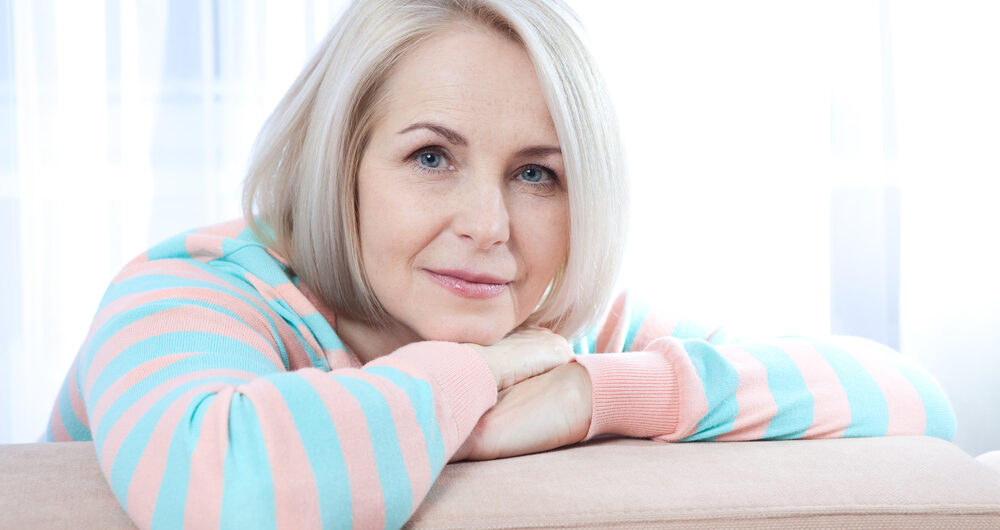What is Menopause?
A change in women that typically occurs in midlife, menopause is often described as the absence of periods for at least one full year. The signs of menopause may include increased irritability, decreased cognitive function, hot flashes, night sweats, increased chronic pains, and more. Many of these symptoms are caused by changes in hormones.
While hormone replacement therapy had been a considerable solution to many women for years, some seek alternative solutions, including all-natural health supplements.
What are Common Signs of Menopause?
There is an ever-growing list of signs of menopause or changes that may be attributed to ageing and hormone changes in women. Beyond hot flashes, night sweats, and bone density loss, other early signs may include irregular periods, vaginal dryness, uneven fat distribution, and others.
If you notice mental or physical changes during this period of transition, a medical professional may be able to help. If you seek a natural solution to manage symptoms, Provitalize may be right for you. But no matter what supplement you choose, remember to always talk to your doctor before taking anything.
Methods of Dealing with Menopause and Chronic Pain
For years, many of the concerns of menopause have been treated with hormone replacement therapy and medication. However, there are other options for self-care and nutrition that may alleviate or improve some symptoms.
1. Exercising
- Menopause and weight gain do not have to be synonymous if we follow even the most basic physical activity guidelines.
- With hormone changes in midlife, it can be more difficult to regulate weight or find the energy to be as active as you may have been previously, causing a change in fat distribution and body composition.
- Postmenopausal and menopausal women have higher instances of obesity and a greater record of weight gain than premenopausal women and those currently in the early phases of menopause.
- Controlling weight gain reduces stress on the musculoskeletal system and can improve chronic pain.
- Exercise can improve other symptoms faced by those experiencing menopause aside from weight gains, such as improved mood and sleep.
2. Practising Mindfulness
- During and after menopause, women may experience symptoms like changes in eating, sleeping habits, and mood, which are often tied to an increase or onset of stress, depression, anxiety, and other psychological signs and symptoms of menopause.
- Studies reflect ties between mindfulness and reduced stress, particularly in studies of women in midlife and menopause.
- People often associate practising mindfulness with healthy eating and other efforts to maintain a healthy lifestyle, such as meditation and breathing exercises.
- Mindfulness for reducing stress and other psychological symptoms of menopause involves avoiding emotional reactivity and ruminative thinking.
- Practising mindfulness has also been studied in menopausal women to relieve insomnia.
3. Supplements for Menopause
- If your doctor approves, there are alternatives to hormone replacement therapy and prescriptions in viable supplements to provide relief for the symptoms of menopause.
- At the onset of signs of menopause, it may be good to consider an all-natural supplement for relieving some symptoms and supporting the changes physical and mental health may undergo.
- Studies show numerous botanicals, herbs, and other natural ingredients to improve the signs of menopause and the quality of supplements available.
- Most supplements for menopause are safe for anyone seeking relief from symptoms of menopause.
Conclusion
Menopause and chronic pain do not have to be synonymous. Neither do menopause and weight gain.
Most signs of menopause can be self-diagnosed and self-treated. A good place to start is with proper exercise and practising mindfulness. Research supports that perimenopausal, menopausal, and postmenopausal women may show improvement in various areas, including mood, weight control, energy, sleep habits, and more.
If efforts at a healthy lifestyle do not relieve all symptoms, such as the chronic pain of menopause, it may be necessary to consider taking a supplement for support. In some cases, hormone changes and other problems related to menopause can be improved with the added dietary support of a natural supplement. One such instance is improving bone mineral density to relieve musculoskeletal pain.
References
- https://journals.lww.com/menopausejournal/Abstract/2019/07000/Menopause_symptoms_and_chronic_pain_in_a_national.5.aspx?context=FeaturedArticles&collectionId=1
- https://journals.lww.com/clinicalpain/Abstract/2006/05000/Musculoskeletal_Pain_and_Menopausal_Status.1.aspx
- https://www.cdc.gov/physicalactivity/basics/age-chart.html
- http://citeseerx.ist.psu.edu/viewdoc/download?doi=10.1.1.467.6685&rep=rep1&type=pdf
Latest Posts:
- Hairstyling and Hair Care Tips to Get Salon Like Hair at Home
- How to Find the Perfect Diamond Ring
- Things You Need to Know Before Going Antique Shopping
- Why You Should Try Using Jawline Exercise Products
- How Often You Should Use Vitamin-E Capsule and What are the Multiple Ways to Use It?
- Beautiful Fabrics And Indian Ethnic Wears At Fabcurate.com
- Get Effective Eczema Relief With Aveeno Eczema Therapy Daily Moisturizing Cream
- Tips to Flaunt Your Hair With Style Without An Effort
- Best Ways to Tackle Menstrual Cramps






Thank you so much for this article and this tips, I found it very useful!
Have a great weekend!
http://www.luciagallegoblog.com